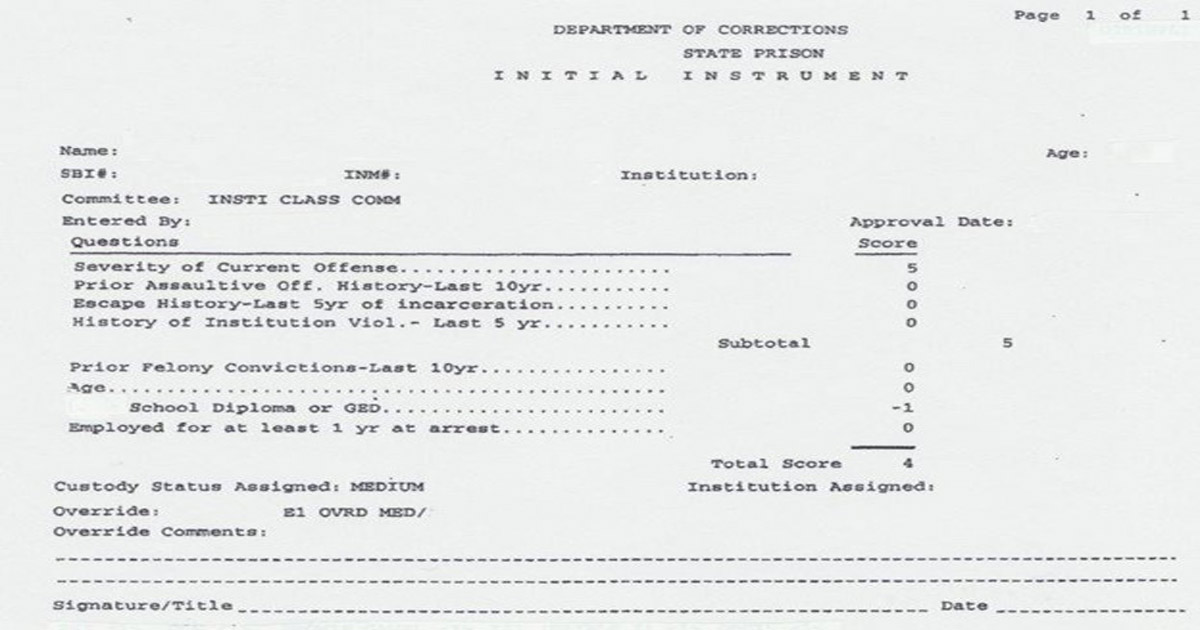Getting Off Parole in New Jersey
The imposition of and length of parole supervision is crime and fact specific. The conditions of supervision imposed are driven by the crime and the facts of the individual parolee. …
How to Prepare for a Parole Hearing in New Jersey
Being granted parole on the first parole eligibility date is not automatic. As a practical matter, the burden is on the inmate to demonstrate insight, remorse, that he/she will not …
Factors That Influence Parole Decisions in New Jersey
Having handled parole planning, administrative parole appeals, parole appeals to the Appellate Division, and parole revocation hearings over many years, I have been asked: What factors do Members of the …
Challenging So-Called “Objective” Psychological Tests: The Use and Abuse Of Psychological Testing In Trials, Sentencing, Parole Consideration, And Custody Disputes
By Eric Marcy, Esq. Criminal and civil courts and the New Jersey State Parole Board have accepted the use of psychological testing as an important component of making legal and …
Parole Modification – Frequently Asked Questions (FAQ): Understanding Options for Modifying Parole Conditions
By Eric Marcy, Esq. At times, a specific parole condition may become unnecessary, burdensome, or interfere with the parolee’s employment prospects and/or rehabilitation. The New Jersey Administrative Code sets forth …
The Parole “Merry-Go-Round” – The Prejudicial Procedural Delay in Parole Appeals
“Merry-Go-Round” Delay by Remand to the Full Board from a Successful Appeal and Reversal of a Board Panel Denial of Parole In Acoli v. New Jersey State Parole Board, 224 N.J. …
The New Jersey Department of Correction’s Misuse of the E-1 Override in Classification Decisions and the Impact on Prison Designation, Programming, and Parole
Once committed to the State Prison system, the Department of Corrections (“DOC”) performs a classification assessment which has implications for an inmate’s prison designation, housing, rehabilitative programming, and ultimately, on …
The Minnesota Multiphasic Personality Inventory Product Line (“MMPI-2, MMPI-2-RF, MMPI-3 ©)
Misuse of Psychological Tests in Courts By Eric Marcy, Esq. The Purpose and Source of Data for the Various MMPI Products The MMPI-2 was a personality assessment tool for mental …
Watch Out for the “Psychopaths” The Psychopathy Checklist-Revised (PCL-R) ©
By Eric Marcy, Esq. CHALLENGING SO-CALLED “OBJECTIVE” TESTING – THE USE AND ABUSE OF PSYCHOLOGICAL TESTING IN LITIGATION Nothing scares a fact finder like the designation that someone is a …
The Millon™ Clinical Multiaxial Inventory Testing the Use and Validity of the MCMI-III™ In Court Cases
The Millon Clinical Multiaxial Inventory III (“MCMI-III”™) is a popular assessment tool used by clinical psychologists, that has been in use since approximately 1977. This instrument has been the subject …
The blogs published by Lyons & Associates are available for informational purposes only and are not considered legal advice on any subject matter. By viewing any of the blogs on this site, the reader understands there is no attorney-client relationship between the reader and the blog publisher. The blogs should not be used as a substitute for legal advice from a licensed professional attorney, and readers are urged to consult their own legal counsel on any specific legal questions concerning a specific situation.
Our Morristown Office Has Moved!
60 Columbia Road
Building B, Suite 150
Morristown, NJ 07960












